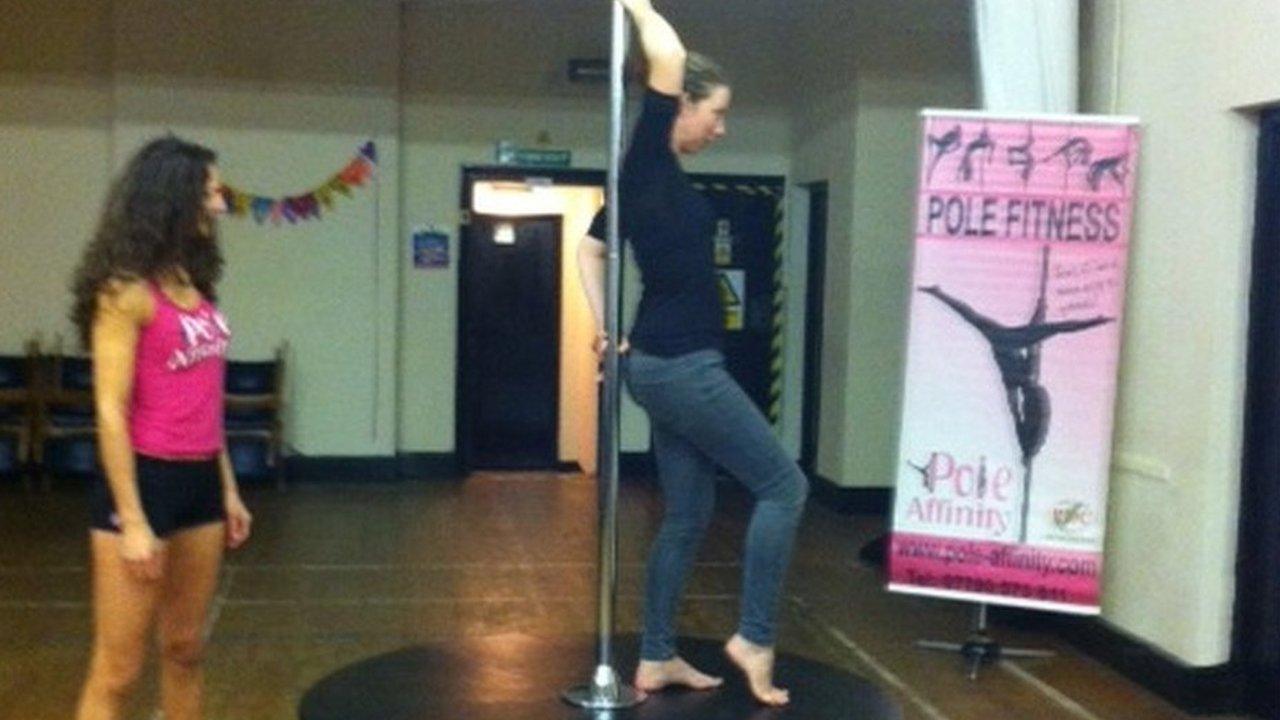Children's pole dancing classes defended as 'not sexual'
- Published
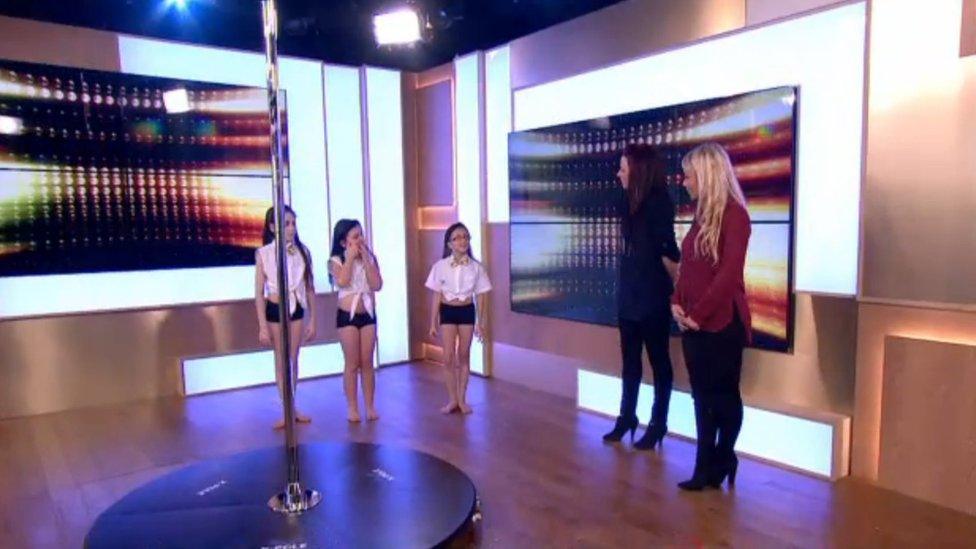
The Pole Intentions classes were criticised after three of the students, aged 8 and 11, did a demonstration on This Morning
Pole dancing classes for children have been defended by a sports governing body following claims that it sexualises youngsters.
The Pole Intentions classes in Derbyshire and Nottinghamshire were criticised after three girls did a demonstration on ITV's This Morning, external.
But instructor Zoe Hardy said they were about sport, and not sexual.
The International Pole Sports Federation has said classes like this help train future athletes.
'Same as other sports'
"Children are our future pole sports athletes and just like any sport we need to train our athletes from a young age," a spokesperson said.
The federation has included children in the World Pole Sports Championships for the last three years, and has its own Youth Pole Sports Coaching course.
"In order for us to be a recognised sport we have to have the same as other sports, so having children included is what any sport would have and we are no different," said the spokesperson.
Similarly, Pole Sports UK said the participation of children should be "celebrated", not criticised.
"We are actively trying to encourage people outside of the industry to see past the immediate connotations surrounding the term 'pole dancing' to recognise that pole sports is so much more," it said in a statement.
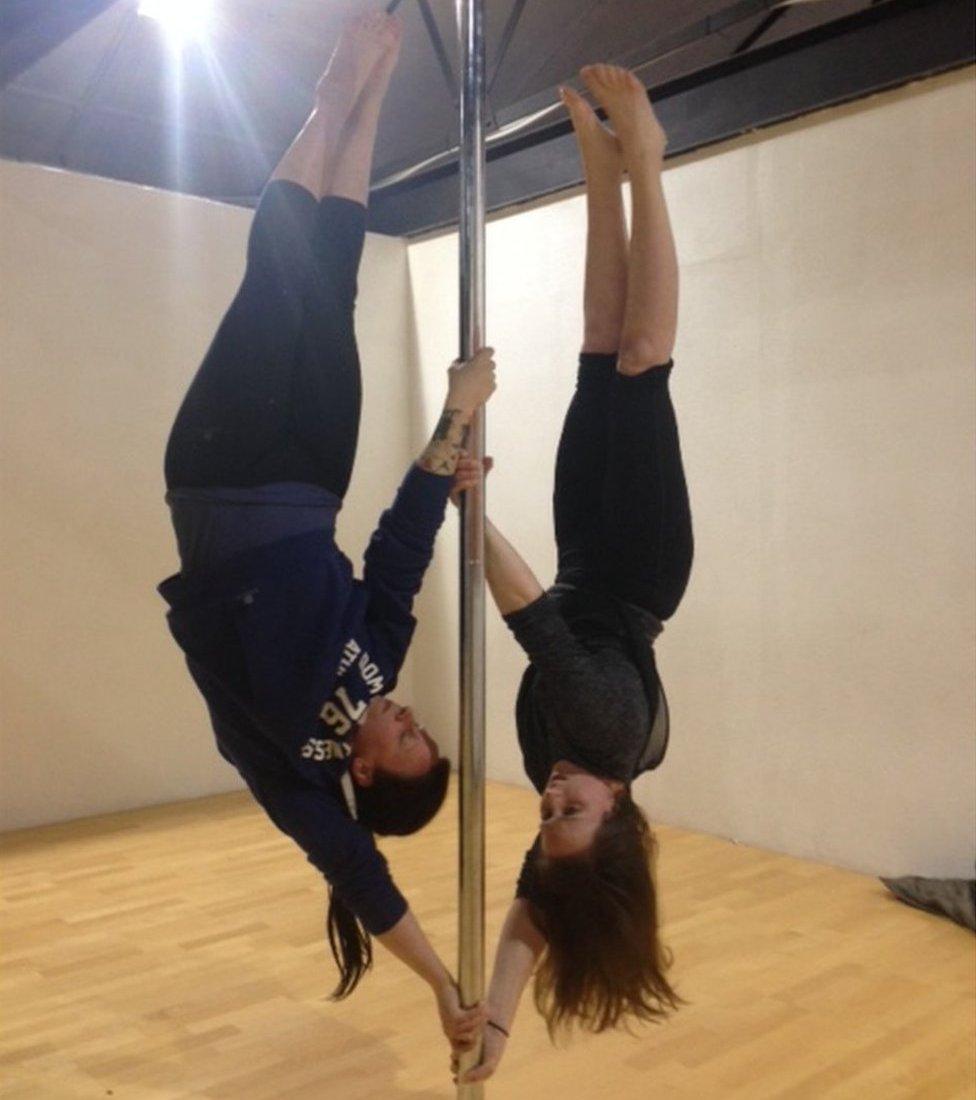
Twins Zoe and Kelly Hardy run the Pole Intentions classes in Alfreton and Sutton-in-Ashfield
Psychologist Kerry Nixon is among people to have criticised the classes.
"Pole dancing is inextricably linked to sexuality," she said.
"The whole notion of pole dancing historically goes hand in hand with a sexual aspect of dance so therefore it is linked and we can't get away from that."
But Miss Hardy said if adults perceive the activity as being a sexual thing it is "in their own head".
"Now we are moving on and away from the strip clubs to a different kind of pole performance, which is a sport," she said.

Sexy or sport?
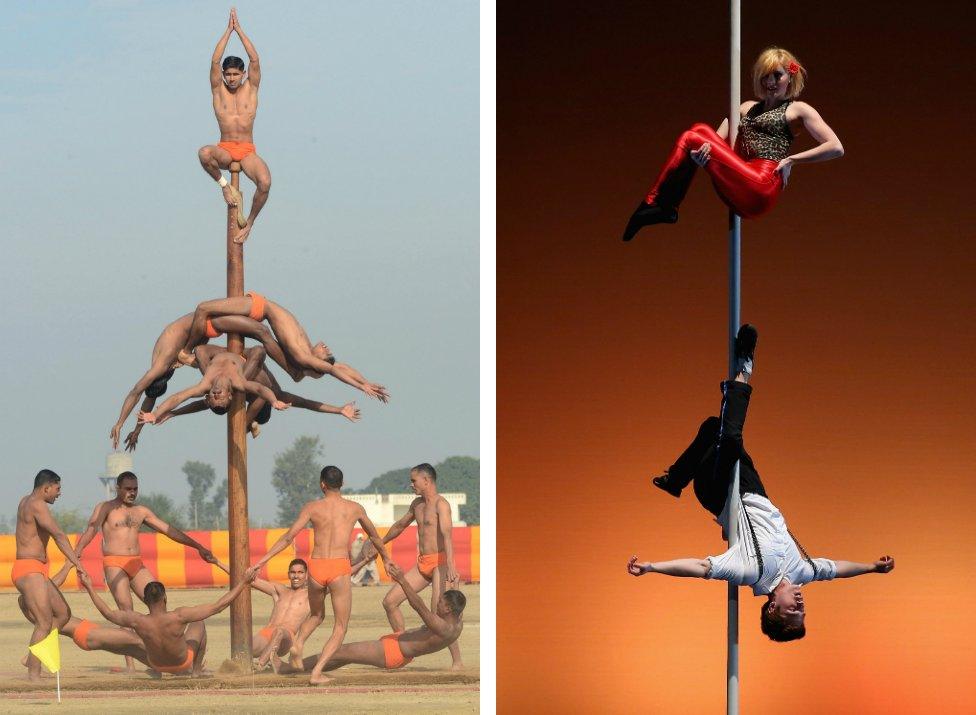
The traditional sports of Mallakhamb (left) and Chinese Pole (right) both involve performing around a pole
Pole dancing only became associated with strip clubs in the 20th century, according to the International Pole Dance Fitness Association, external
Chinese acrobats have performed displays known as Chinese Pole since before the 12th century
There is also a traditional Indian sport known as Mallakhamb, in which a gymnast performs around either a vertical pole or a rope
In recent years there have been attempts to reclaim pole dancing as a form of exercise and a sport
The International Pole Sports Federation wants pole sports to become part of the Olympic Games
Pole Sports UK is working towards gaining recognition by Sport England to be accredited as an official sport

Lorraine Handbury, whose 11-year-old daughter goes to the Nottinghamshire classes, said there is no "provocative dancing" involved.
"She used to compete in gymnastics so to me it's no different to that, it's just the bar is a different way," she said.
"They have to wear shorts because you have to be able to hold on with your skin."
- Published17 February 2016
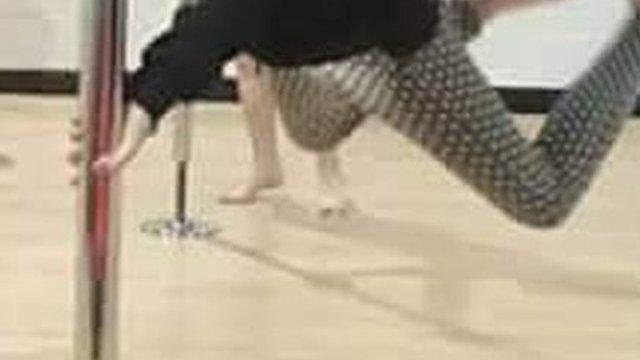
- Published9 March 2013
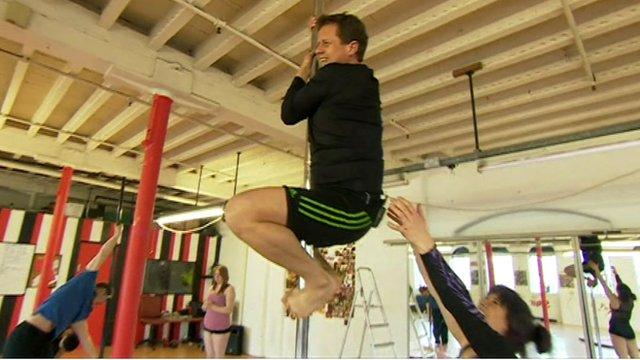
- Published27 November 2012
